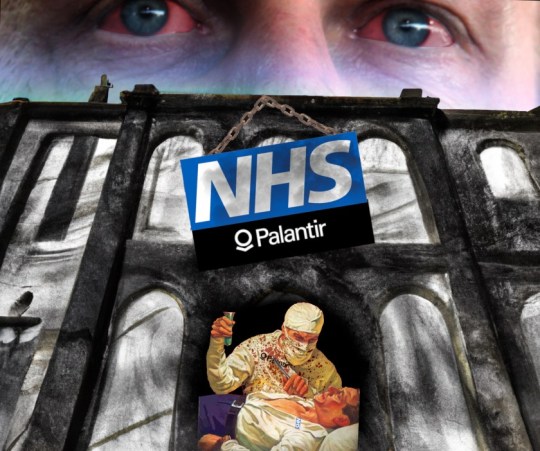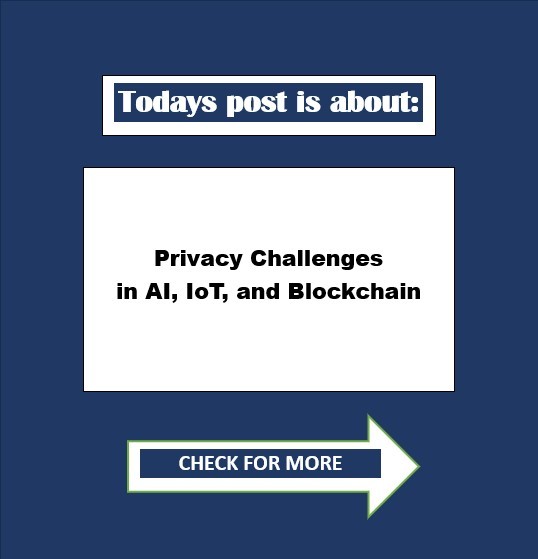#anonymization
Text
Palantir’s NHS-stealing Big Lie

I'm on tour with my new, nationally bestselling novel The Bezzle! Catch me in TUCSON (Mar 9-10), then SAN FRANCISCO (Mar 13), Anaheim, and more!

Capitalism's Big Lie in four words: "There is no alternative." Looters use this lie for cover, insisting that they're hard-nosed grownups living in the reality of human nature, incentives, and facts (which don't care about your feelings).
The point of "there is no alternative" is to extinguish the innovative imagination. "There is no alternative" is really "stop trying to think of alternatives, dammit." But there are always alternatives, and the only reason to demand that they be excluded from consideration is that these alternatives are manifestly superior to the looter's supposed inevitability.
Right now, there's an attempt underway to loot the NHS, the UK's single most beloved institution. The NHS has been under sustained assault for decades – budget cuts, overt and stealth privatisation, etc. But one of its crown jewels has been stubbournly resistant to being auctioned off: patient data. Not that HMG hasn't repeatedly tried to flog patient data – it's just that the public won't stand for it:
https://www.theguardian.com/society/2023/nov/21/nhs-data-platform-may-be-undermined-by-lack-of-public-trust-warn-campaigners
Patients – quite reasonably – do not trust the private sector to handle their sensitive medical records.
Now, this presents a real conundrum, because NHS patient data, taken as a whole, holds untold medical insights. The UK is a large and diverse country and those records in aggregate can help researchers understand the efficacy of various medicines and other interventions. Leaving that data inert and unanalysed will cost lives: in the UK, and all over the world.
For years, the stock answer to "how do we do science on NHS records without violating patient privacy?" has been "just anonymise the data." The claim is that if you replace patient names with random numbers, you can release the data to research partners without compromising patient privacy, because no one will be able to turn those numbers back into names.
It would be great if this were true, but it isn't. In theory and in practice, it is surprisingly easy to "re-identify" individuals in anonymous data-sets. To take an obvious example: we know which two dates former PM Tony Blair was given a specific treatment for a cardiac emergency, because this happened while he was in office. We also know Blair's date of birth. Check any trove of NHS data that records a person who matches those three facts and you've found Tony Blair – and all the private data contained alongside those public facts is now in the public domain, forever.
Not everyone has Tony Blair's reidentification hooks, but everyone has data in some kind of database, and those databases are continually being breached, leaked or intentionally released. A breach from a taxi service like Addison-Lee or Uber, or from Transport for London, will reveal the journeys that immediately preceded each prescription at each clinic or hospital in an "anonymous" NHS dataset, which can then be cross-referenced to databases of home addresses and workplaces. In an eyeblink, millions of Britons' records of receiving treatment for STIs or cancer can be connected with named individuals – again, forever.
Re-identification attacks are now considered inevitable; security researchers have made a sport out of seeing how little additional information they need to re-identify individuals in anonymised data-sets. A surprising number of people in any large data-set can be re-identified based on a single characteristic in the data-set.
Given all this, anonymous NHS data releases should have been ruled out years ago. Instead, NHS records are to be handed over to the US military surveillance company Palantir, a notorious human-rights abuser and supplier to the world's most disgusting authoritarian regimes. Palantir – founded by the far-right Trump bagman Peter Thiel – takes its name from the evil wizard Sauron's all-seeing orb in Lord of the Rings ("Sauron, are we the baddies?"):
https://pluralistic.net/2022/10/01/the-palantir-will-see-you-now/#public-private-partnership
The argument for turning over Britons' most sensitive personal data to an offshore war-crimes company is "there is no alternative." The UK needs the medical insights in those NHS records, and this is the only way to get at them.
As with every instance of "there is no alternative," this turns out to be a lie. What's more, the alternative is vastly superior to this chumocratic sell-out, was Made in Britain, and is the envy of medical researchers the world 'round. That alternative is "trusted research environments." In a new article for the Good Law Project, I describe these nigh-miraculous tools for privacy-preserving, best-of-breed medical research:
https://goodlawproject.org/cory-doctorow-health-data-it-isnt-just-palantir-or-bust/
At the outset of the covid pandemic Oxford's Ben Goldacre and his colleagues set out to perform realtime analysis of the data flooding into NHS trusts up and down the country, in order to learn more about this new disease. To do so, they created Opensafely, an open-source database that was tied into each NHS trust's own patient record systems:
https://timharford.com/2022/07/how-to-save-more-lives-and-avoid-a-privacy-apocalypse/
Opensafely has its own database query language, built on SQL, but tailored to medical research. Researchers write programs in this language to extract aggregate data from each NHS trust's servers, posing medical questions of the data without ever directly touching it. These programs are published in advance on a git server, and are preflighted on synthetic NHS data on a test server. Once the program is approved, it is sent to the main Opensafely server, which then farms out parts of the query to each NHS trust, packages up the results, and publishes them to a public repository.
This is better than "the best of both worlds." This public scientific process, with peer review and disclosure built in, allows for frequent, complex analysis of NHS data without giving a single third party access to a a single patient record, ever. Opensafely was wildly successful: in just months, Opensafely collaborators published sixty blockbuster papers in Nature – science that shaped the world's response to the pandemic.
Opensafely was so successful that the Secretary of State for Health and Social Care commissioned a review of the programme with an eye to expanding it to serve as the nation's default way of conducting research on medical data:
https://www.gov.uk/government/publications/better-broader-safer-using-health-data-for-research-and-analysis/better-broader-safer-using-health-data-for-research-and-analysis
This approach is cheaper, safer, and more effective than handing hundreds of millions of pounds to Palantir and hoping they will manage the impossible: anonymising data well enough that it is never re-identified. Trusted Research Environments have been endorsed by national associations of doctors and researchers as the superior alternative to giving the NHS's data to Peter Thiel or any other sharp operator seeking a public contract.
As a lifelong privacy campaigner, I find this approach nothing short of inspiring. I would love for there to be a way for publishers and researchers to glean privacy-preserving insights from public library checkouts (such a system would prove an important counter to Amazon's proprietary god's-eye view of reading habits); or BBC podcasts or streaming video viewership.
You see, there is an alternative. We don't have to choose between science and privacy, or the public interest and private gain. There's always an alternative – if there wasn't, the other side wouldn't have to continuously repeat the lie that no alternative is possible.

Name your price for 18 of my DRM-free ebooks and support the Electronic Frontier Foundation with the Humble Cory Doctorow Bundle.

If you'd like an essay-formatted version of this post to read or share, here's a link to it on pluralistic.net, my surveillance-free, ad-free, tracker-free blog:
https://pluralistic.net/2024/03/08/the-fire-of-orodruin/#are-we-the-baddies

Image:
Gage Skidmore (modified)
https://commons.m.wikimedia.org/wiki/File:Peter_Thiel_(51876933345).jpg
CC BY-SA 2.0
https://creativecommons.org/licenses/by-sa/2.0/deed.en
#pluralistic#peter thiel#trusted research environment#opensafely#medical data#floss#privacy#reidentification#anonymization#anonymisation#nhs#ukpoli#uk#ben goldacre#goldacre report#science#evidence-based medicine#goldacre review#interoperability#transparency
520 notes
·
View notes
Text
Alright so i switched over not too long ago to using firefox + duckduckgo + adblocker ultimate
And let me tell you: it is so SO much better than my previous combo of chrome + ecosia + some other adblocker
WHY?
firefox:
really easy to set up
firefox actually cares about not tracking your every movement on the internet
firefox (like chrome) puts the tabs on top of the search bar as opposed to under it (like safari. safari is stupid because of this. i know this is an odd take to have but I don't much care. why would you break apart the label of a page from the page itself with the labels for different pages??? why???)
doesn't use the same process for different tabs (makes you a harder target for people hacking, also means that if a site is using more cpu than you want killing the offending process in task manager only crashes one tab)
very easy to customize
duckduckgo:
doesn't track your searches
tells you how well a site will honor your privacy and adds some protection
pretty good as a search engine just generally
adblocker ultimate
blocks fuckin everything.
I mean everything. ads. pop ups. cryptomining. known phishing links and online scams. malware. all kinds of trackers (google is a huge offender surprise surprise). anything that you ask it to by clicking "hide element" and then clicking on the thing you want it to hide
doesn't have "pre-whitelisted ads" which are basically ads that companies pay adblockers to whitelist so you still see them
free. you can donate, but it costs no money
tells you how many things it's blocked both lifetime and on a site since you opened it (i usually get a count on google docs of about 230 in 30 minutes yay trackers!)
i have not seen an ad i didn't consent to since I got it
https://adblockultimate.net/ (scroll down for the extension)
#firefox my beloved#firefox#duckduckgo#adblocker ultimate#anonymization#antitracking#online privacy#no ads
47 notes
·
View notes
Note
its so brave that you have such a 2012-coded url in this 2024 world
would you call a bear brave for standing in a new construction suburb or would you recognize the unfamiliar world they built around him
48K notes
·
View notes
Text
We ask your questions so you don’t have to! Submit your questions to have them posted anonymously as polls.
#polls#incognito polls#anonymous#tumblr polls#tumblr users#questions#polls about sex#submitted nov 22#polls about lgbtq stuff
56K notes
·
View notes
Note
Are you an advocate for censorship?
is this because i said not to use the r slur
22K notes
·
View notes
Note
i wish i was a boy so that boys would wish i was a girl so they could fuck me is that anything
it's everything. i understand you anon.
23K notes
·
View notes
Note
do you think a 5'4 and 6'2 height difference is predatory?
Aaksjejaozkwksjaozhqodjwizhqbsjqnssjhqsbkqzj$:&.$^€\€|€\+\€|¥]£|.*%[€]*jensbshaoswahajsihwhwoqi$/$:$:8:&2$:$/$.&102$;!;$;8:&;$494882:891jsjsjsjsoajajwbejxjwhhqausbwuwijeehjediwijwjwjejsiwjai/&/&/&.!benwnejxbabsjsjzhwnejehehsjaij$$2$/18828/!.!/&-!:$::8:.$.?2)ghshsbevdidirjdjdjdjsijdjeojjdj$&/&.!ahhahHshbsnsjshajajanshsjsjwjwsshwhwhw
#asks#anonymous#i feel like you sent this to make me feel better after I was bitching but as a certified 5’4 binch no I do not think height differences#are predatory. thank you for the ask though
15K notes
·
View notes
Note
can you not post nsfw :(
you come into my home uninvited and tell me how i should arrange my furniture? what a fool you are. skeleton divine death blast

49K notes
·
View notes
Note
Can you share with us a good rabbit picture
Of course! here's th

122K notes
·
View notes
Text
Privacy Challenges in AI, IoT, and Blockchain
Emerging technologies such as Artificial Intelligence (#AI), Internet of Things (#IoT), and #Blockchain offer unprecedented opportunities for innovation and growth. However, along with these advancements come complex challenges, particularly in the realm of data privacy. In the United Kingdom, where regulations like the General Data Protection Regulation (GDPR) and the Data Protection Act govern…

View On WordPress
#AdaptivePrivacy#AI#Anonymization#Blockchain#BusinessCompliance#BusinessDocuments#businessforms#ContinuousMonitoring#ContractTemplates#data#dataprotection#DataProtectionAct#DataProtectionCompliance#Encryption#gdpr#IoT#KPI#LawDocuments#LegalDocuments#LegalForms#lexdexsolutions#MFA#minimization#PIA#privacy-by-design#privacycompliance#PrivacyData#PrivacyMonitoring#PrivacyRiskManagement#PrivacyRisks
0 notes
Text
#anonymization software#video anonymization#redaction software#redaction tool#gyrus ai#gyrus#neural network accelerator#anonymization#data protection#neural networks
0 notes
Note
Wait what was that coup that america did? In south america I think? I cant remember it

you're gonna have to be more specific
23K notes
·
View notes
Text
i think kids online should really get back to making internetsonas instead of whatever fuckshit this is with putting their entire real faces, names, ages, and such everywhere. you're not gonna realize how nice internet privacy is until you dont have it anymore and no chance at getting it back. make up a guy and a name and just be that online. make up conflicting details about your completely made up backstory. make a fursona or something
#unironically furries keeping their online anonymity by making a persona to use online? class#like what do you think the point of a sona is. its to stick to the bit and keep your privacy
69K notes
·
View notes
Note
how do you reconcile with liking morally imprehensible content and problematic media?
i dont reconcile w anything bc i dont give a shit thanks for sending me this batshit ask tho
49K notes
·
View notes
Text
We ask your questions so you don’t have to! Submit your questions to have them posted anonymously as polls.
#polls#incognito polls#anonymous#tumblr polls#tumblr users#questions#polls about the body#submitted nov 29#nsft#body hair#bush
24K notes
·
View notes
Note
why do you charge money for your art
big fan of eating
195K notes
·
View notes